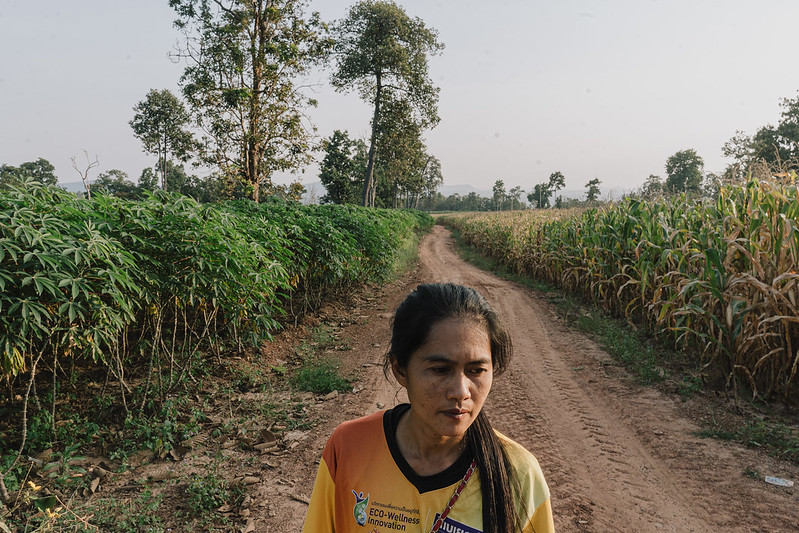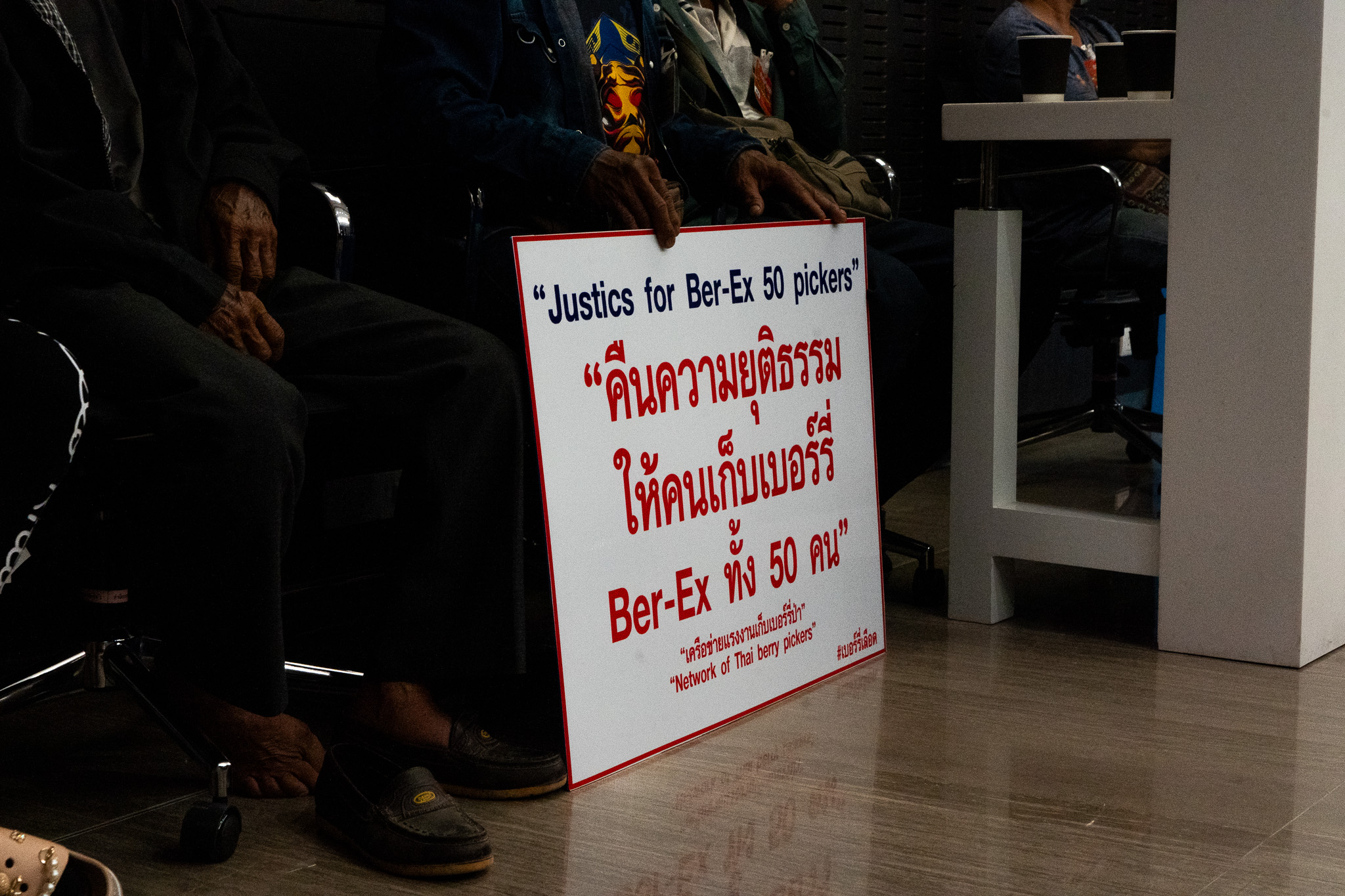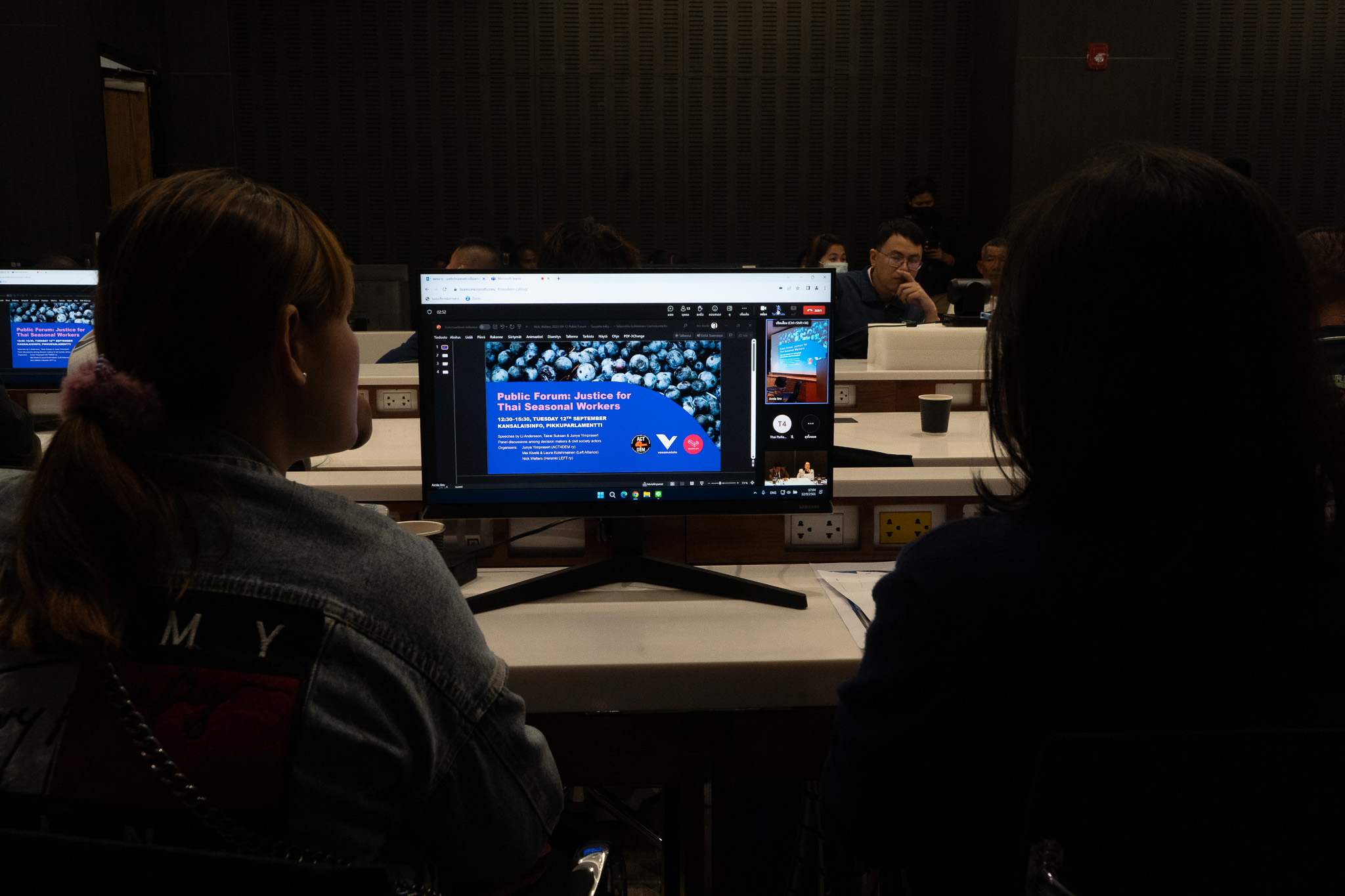
Guest contribution by Sarah Walsh & Ember V. Everwood
Protest flags whip in the wind as Chutima Chuenhuajai and thirty fellow activists march down the Mittraphap Highway on their way from Bangkok to Khon Kaen. Once running a bakery in her village in Lampang Province, the young woman turned to activism when a mining project threatened the well-being of her community.
“For seven years I have fought against the mine, and to be honest, I have already stepped past the fear,” Chutima says. “I told my parents if something happened to me, if I were arrested, not to worry as its part of the fight that I have to take.”

“Thai citizens view us as disruptive because they do not see first-hand what is going on in our village,” Chutima says. “I want Thai citizens to be more understanding and educated about some of the challenges that many communities in Thailand are facing.”
Born and raised in Ban Haeng Village, the 33-year-old activist has spent the last seven years of her life fighting against a lignite coal mine.
The local anti-mining group claims the project threatens the community’s traditional livelihood that is dependent on the forest. With the mine located only 700 meters away from the village, the explosions affect the quality of air and water in the village and nearby rivers. Villagers fear that the water pollution may negatively impact their sources of income: the farming of rice, corn, and garlic.
“The mine has not only affected my village, but also two other villages,” Chutima says. “Nearly 700 people have been affected by the creation of this mine.”
In 2015, the Ministry of Industry granted a mining license to private energy company Green Yellow Co. Ltd., with the sub-district headman’s approval.
But Chutima claims the sub-district headman failed to gather input from the community regarding whether or not they supported the mine. Upset community members refused to be left in the dark. They demanded to know why the headman signed the approval without consulting the villagers first.
“We tried to block the headman’s truck with hopes of getting him to speak with us, but that failed,” Chutima says. “A few of us even went to the headman’s house with hopes of having a productive conversation with him.”
When this did not work, Chutima, along with other villagers, came up with an alternative plan: take the headman’s corn, and give it back to him only if he agree to talk to them.
As the headman still refused to talk, the activists made a radical decision: They sold his corn to a mill.
But their plan backfired; the headman took the matter to the police. The authorities charged Chutima and eleven villagers with vandalism and violating the Public Assembly Act.
Two years later, Chutima is required to report to court every month while she awaits trial. To this day, villagers have yet to receive an explanation from the headman as to why he signed the approval without consulting villagers first.
Chutima sees the mine as a large burden for the community. People’s rights have been violated and community members feel as if the government “covered their eyes, ears, and mouths while ignoring their grievances,” she says.
Chutima’s passion for advocating for the village forced her to close her bakery because she spent most of her time attending forums and seminars about the mine. She now financially supports herself mainly by selling crops at a local market.
Although she has been summoned by the military and police for attitude adjustment in 2014, she continues to spread her message to others through Facebook Live and the “We Walk” campaign. She believes her activism has raised public awareness of the issues her village faces.
But the activists and their attempts to advocate for their villages come under criticism by some Thais who believe that some activists are simply causing more problems for the country and are disruptive, Chutima says.
“Thai citizens view us as disruptive because they do not see first-hand what is going on in our village. They are not directly affected; therefore, they do not understand what we are fighting for,” she says. “I want Thai citizens to be more understanding and educated about some of the challenges that many communities in Thailand are facing. Outsiders only see the nice nature and the good environment, but not the destruction that the mine has caused in the village.”
Chutima hopes that the “We Walk” campaign will raise awareness and understanding of the issues she and other community members face. By educating citizens, Chutima believes, activists will be able to gain more support.
“Even though my voice may not be loud enough, it may be just one small voice, I still want to be a part of this group of people who are speaking out to the public. That’s why I walk,” she says.
Sarah Walsh is a pseudonym. She studies at Providence College. Ember V. Everwood is a pseudonym. She studies at the University of Massachusetts-Amherst. Both institutions are in the USA.





